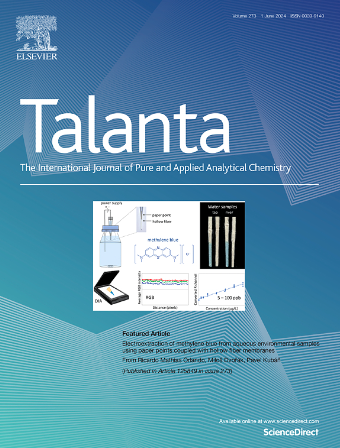Highly sensitive ratiometric fluorescence detection of dibutyl phthalate in liquor and water using bio-based fluorescent molecularly imprinted polymers
Abstract
A novel fluorescent molecularly imprinted polymer (DBP-FMIPs) was designed and prepared for the selective detection of dibutyl phthalate (DBP) in food samples. This was achieved using inclusion complexes formed between short amylose and DBP as precursors, with tetrafluoroterephthalonitrile, which possesses an electron-donor-acceptor type dipolar structure within a compact benzene backbone, serving as a crosslinking agent and fluorescent readout signal. DBP-FMIPs exhibit excellent fluorescence stability and high selectivity, with a response time of less than 3?min for DBP. Based on the blue-green fluorescence emitted by DBP-FMIPs (λem?=?500?nm), this material provided the response signal, while the red-emitting carbon dots(R-CDs, λem?=?680?nm) were used as an internal reference, constructing a ratiometric fluorescence probe (R-CDs/DBP-FMIPs). The fluorescence intensity ratio (I500/I680)0/(I500/I680) exhibited a linear response to DBP within a concentration range of 0.020-20?mg?L-1, with a detection limit as low as 4.5?μg?L-1, and its fluorescence color shifted from blue to red. The fluorescent probe was successfully applied for detecting DBP in liquor and drinking water samples, achieving recoveries of 88-107?% and a relative standard deviation of 1.1-6.4?%. This preparation method can also be adapted for synthesizing FMIPs targeting other hydrophobic compounds. Additionally, the developed ratiometric fluorescence probe shows great potential for the selective and visual detection of phthalates in complex samples.





